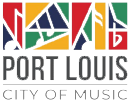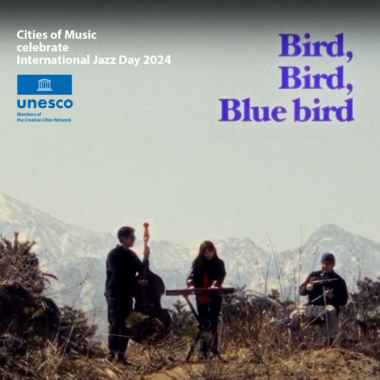Port Louis
Mauritius
UNESCO City of Music
since 2021
Port Louis, as a cosmopolitan capital city, is the showcase of Mauritius, the reflection of a mosaic of cultures and traditions which originated from all continents with a strong historical background and emerging modern elements. It is the place where all great events in the history of the country have taken place. The City is the birthplace of the historical, political, social and economic evolution of Mauritius.
The fusion of old and new is typical of many islands in the Indian Ocean. Mauritius has a colourful past which is reflected in the various cultures, religions and traditions of its citizens.
During the period 1598 to 1710 when Dutch settled on the island, slaves were brought from African countries, particularly from Mozambique and Madagascar, for the main purpose of felling ebony trees and working on tobacco and sugar cane plantations. The economic foundation of the country was then developed as a sugarcane colony.
The island was later taken over by the French in 1715. Buildings were erected in the 18th and early 19th centuries by slaves, who produced bricks, lime, and also carried out wood and iron works. They did all the manual works to build up Port Louis, in terms of road and infrastructural development, under the leadership of Governor Mahé de Labourdonnais. The infrastructural legacy of slaves during the French settlement is reflected in the existing colonial buildings, like the Government House, Fort Adelaide, the Central Market and the military and civil hospitals.
Shortly after the British conquered the island in 1810, slavery was abolished resulting in a drastic repercussion on the socio-economic and demographic fields. To counter the loss of manpower/labour force, Indian indentured labourers were employed to work in the sugar plantations. They came in large numbers and were of both Hindu and Muslim faith. They were later joined by some traders of Chinese origin. This eventually changed the fabric of the society.
This multiculturalism gave birth to a blend of artistic and musical form. Sega music and dance emerged during the slavery epoch. Subsequently, the rural forms of music, like the Mauritian Bhojpuri songs and kawali, melted in the cultural fabric during the period of indentured labour and remained popular. Musicians in Mauritius are talented and, throughout the years, Mauritian music has evolved to international standards. For instance, the Geet Gawai, a pre-wedding ceremony of Bhojpuri speaking people, was listed on the Intangible Cultural Heritage List of UNESCO in 2016.
Promoting traditional folk music, encouraging contemporary music, building capacity especially in suburbs and providing platforms, act as a powerful tool to empower the youth while protecting them from social ills (Agenda 2063).
Music will enhance the discovery of other heritage treasures, thereby benefiting the City’s creative and heritage economy. The City will collaborate with all stakeholders to achieve this goal (SDG 17).
The City Council of Port Louis implements projects at grassroot level, promoting social inclusion (SDGs 1,8) while partnering with Non-Governmental Organisations (NGOs), Civil Society Organisations (CSOs) and the private sector in line with SDG 17 and UN Agenda 2063.
Port Louis is home to a rich cultural scene. Visitors have access to cultural heritage sites, namely the Aapravasi Ghat (AGWHS) designated as the UNESCO World Heritage Site in 2006, and cultural landmarks such as the St Louis Cathedral, the Jummah Mosque/Masjid, the Sockalingum Meenatchee Ammen Temple (Kaylasson), the Western Cemetery and Chinatown.
In addition, the world-class assets of the city include the Company’s Garden (Jardin de la Compagnie) serving as a cultural musical platform for artists ; the Municipal Theatre, the Champ de Mars race course and the Natural History Museum.


